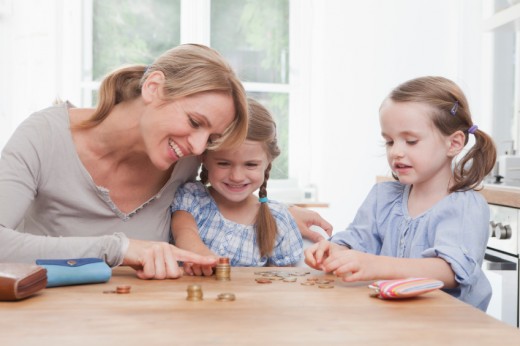Especially around the holidays, marketing efforts are typically focused on getting the attention of youngsters. From a very young age, children naturally desire to shove current belongings to the side in hopes of getting the latest and greatest innovative gadgets and toys available. However, once children become old enough to recognize right from wrong, parents must instill a sense of value. This attribute involves appreciating what one has and taking care to see that possessions last. There are many different ways of introducing this time-honored virtue.
Consistency
Similar to establishing any habit or converting short-term into long-term memory, children retain information and develop behaviors by repetition. Teaching value is no exception. Unless continually reminded, kids often let lessons slip by the wayside. Be consistent and in time, behaviors gradually evolve and become habit.
Lead by Example
Children often emulate the attitudes and behaviors of parents from a young age. If parents do not exhibit traits that include value of possessions, children are also not likely to display the characteristic, regardless of how many times they endure a lecture.
Self-Control
Following a parent’s example includes watching how adults spend money. If adults insist on expensive indulgences, children too learn to place a higher value on always having the best and not being satisfied with what they have. Practice self-control and rightfully recognize the need for a particular item before making the purchase.
Value of Money
Many children may develop the opinion that as long as there are checks in a checkbook or a credit card available, then there is money to make a desired purchase. However, youngsters need to understand where the money comes from and how quickly it disappears if not spent wisely. Earning, saving and spending are concepts that even preschool children can begin learning.
Use and Maintenance
Teaching children the value of possessions includes using items in the manner for which they are made, keeping them clean, in good working order and storing things properly when not in use. This task may begin simply by ensuring that kids pick up their own toys and belongings and putting them in a designated place.
Replace vs. Repair
Along with believing that money is readily available, children are often under the misunderstanding that once something breaks or stops performing as desired, it is time to replace that object. After learning to properly care for possessions, breakages occur less frequently. However, kids must also learn that sometimes repairing an item is more cost-effective.
Sharing
Children also learn to have a greater appreciation for what they have after learning that there are children much less fortunate. This lesson might easily be learned by encouraging them to voluntarily pick out toys no longer played with and donating the items to charity.
Rewards and Consequences
Offer praise when children demonstrate a lesson well learned. Conversely, if they repeatedly act irresponsibly, determine a set of consequences for the action. Lost privileges, refusal to replace lost or broken items, or the threat of not making future purchases are some of the many effective ways to reinforce rules and expectations.
Originally posted on December 8, 2014 @ 7:35 am

